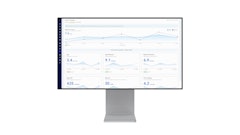
For manufacturing and supply chain professionals, the integration of advanced software solutions has emerged as a pivotal force in reshaping operations. From optimizing production processes to enhancing inventory management and fostering collaboration, software solutions have become essential tools in the global supply chain. Here, we evaluate three core areas where we see software solutions transforming the industry and discuss how businesses can determine the best software for their needs.
Streamlining Operations and Enhancing Efficiency
One of the hallmark achievements of contemporary software solutions is their ability to significantly enhance the efficiency of production processes. At the core of these advanced systems are sophisticated data analytics, artificial intelligence (AI), and machine learning (ML) algorithms, which collectively work to streamline operations across a wide spectrum of industries. Consider the example of warehouse management software, which is specifically designed to increase output while simultaneously minimizing downtime. This is achieved through meticulous analysis of operational data, allowing for the identification of inefficiencies and the formulation of targeted strategies for improvement.
Furthermore, these software solutions extend their impact by focusing on waste reduction and the initiation of improvement initiatives, thereby setting the stage for increased operational efficiency, cost savings, and productivity enhancements. The breadth of industries benefiting from such technological advancements is vast, ranging from manufacturing to logistics, each witnessing a transformative shift towards more streamlined and effective operations. By leveraging the power of data and predictive analytics, businesses are now equipped to make more informed decisions, optimize their resource allocation and achieve a competitive edge in the marketplace. This digital revolution is not just about optimizing current operations but also about reimagining what is possible in the future of industry.
Fostering Collaboration and Critical Knowledge Retention
Collaborative software platforms are breaking down departmental silos that have long hindered the flow of information between departments. By providing a unified platform for sharing data, documents and insights, tools enable teams and stakeholders to synchronize their activities, anticipate bottlenecks and archive essential data for future reference.
Enhanced Decision-Making and Strategic Insights
Driven by the benefits of enhanced efficiency, improved collaboration and more information decision-making, there is a widespread adoption of software solutions within the global supply chain. Traditional inventory management systems often struggle to keep pace with the complexities of modern supply chains characterized by global sourcing, fluctuating demand, and diverse product portfolios. Advanced software can now accurately monitor inventory levels for a wide array of products and utilize AI to automate refilled orders.
Thanks to the integration of software solutions into business processes, global supply chains are becoming increasingly efficient. With the benefits of enhanced efficiency, improved collaboration and more informed decision-making, widespread adoption of software solutions will help make supply chains not only more efficient but also more resilient.


























